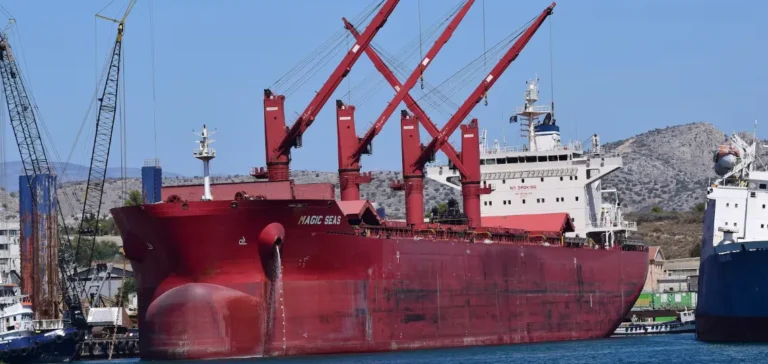A Liberian-registered bulk carrier, operated by a Greek maritime company, was attacked off the coast of Yemen by several small vessels equipped with small arms, rocket launchers, and remotely-controlled explosive drones. The ship’s crew quickly abandoned the vessel after a fire broke out due to the impacts and significant water ingress occurred. All crew members were safely rescued by another commercial vessel nearby. The incident reignited regional geopolitical tensions and directly affected the security of commercial maritime transit in the Red Sea.
Detailed Chronology of the Attack
According to initial reports, the assault unfolded in several distinct phases. Initially, around eight small, fast-moving boats opened fire using automatic weapons and rocket-propelled grenades. Shortly afterward, four explosive maritime drones were directed towards the bulk carrier; two successfully struck their target, causing severe structural damage and igniting a significant fire. The onboard security team reportedly neutralized the other two drones before impact. These coordinated attacks rendered the vessel unable to continue its voyage, forcing the crew to permanently abandon ship.
Attribution and Regional Escalation
Although no official claim of responsibility was issued, the characteristics of the attack strongly match previous operations by Yemen’s Houthi rebel group, known for frequently employing explosive drones against commercial vessels transiting the Red Sea. Previously, the Houthis had explicitly threatened to escalate their actions against commercial shipping in response to Israeli and U.S. military operations targeting Iranian interests. The resumption of such attacks could indicate a new escalation in regional tensions, especially after recent exchanges of threats directly involving the Houthis and Israel.
Israel’s Immediate Military Response
In direct response to this attack, Israel launched targeted airstrikes against several Houthi-controlled port facilities, including locations at Hodeida, Ras Isa, and Salif, as well as a power plant in Ras Kanatib. The declared aim of these strikes is to disrupt weapon-supply routes used by the rebel group. In retaliation, the Houthis fired at least one ballistic missile towards Israel, heightening concerns over a major escalation of regional tensions.
Immediate Economic Impacts on Maritime Commerce
The resurgence of violence in the Red Sea has caused an immediate rise in insurance premiums charged to shipping operators navigating through the region. This strategic area represents one of the world’s key transportation arteries for energy commodities, notably crude oil and natural gas shipments heading towards Europe and Asia. Increased perceived risks are already pushing economic actors to consider alternative routes to prevent major disruptions to their supply chains.
Potential Long-Term Consequences for Global Energy
Should such attacks increase in frequency, they could significantly alter economic balances in international energy transportation. Prolonged maritime tensions in the Red Sea would lead to higher logistics costs for energy operators, potentially impacting global energy prices. Faced with these elevated risks, companies might reconsider their sourcing strategies, prioritizing longer but safer routes.






















